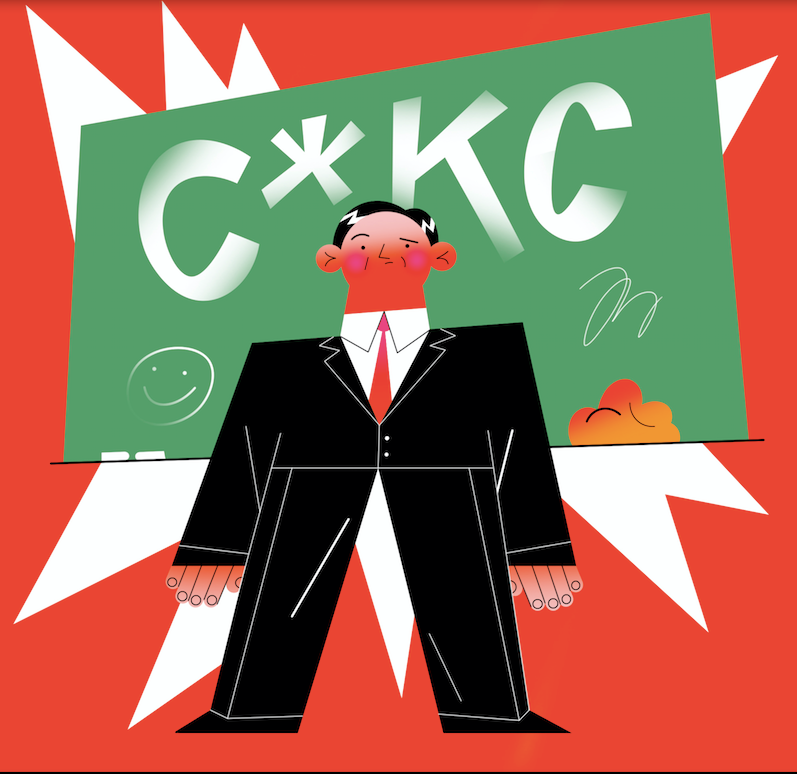Sex education is one of the aspects the United Nations Population Fund focuses on. To find out what Ukrainian parents and teachers think about sex education now and its future development, a sociological survey was conducted by the Cedos Analytical Center in partnership with the Info Sapiens Research Agency.
According to UNESCO's definition in the International Technical Manual on Sex Education, comprehensive sexuality education is "the process of learning, educating and developing on the cognitive, emotional, physiological and social aspects of sexuality based on the curriculum." It is sex education that helps to form harmonious personalities, and it is also able to prevent many problems: from unwanted pregnancies to gender-based violence.
To find out the attitude of parents and teachers to comprehensive sex education, to assess the desire to participate in this education, a study was conducted. It took place in December 2019 - June 2020 and covered the entire country, except for the temporarily occupied territories.
So what do parents and teachers need to be more involved in children's sex education, and are they ready for it? The answers are in our text.
Parents
Parents play a crucial role in the sexual education of children and adolescents because they are people with who children spend a lot of time, and parents have the opportunity to talk about sensitive topics in a more informal setting. However, parents feel the need for sex education for themselves, because, when it comes to certain issues, parents may feel a lack of knowledge, too.

Generally, parents have psychological barriers in communicating with their children on topics related to puberty and sexual health. Focus group participants noted during the study that they often do not know how to "approach" children, how to start a conversation. Besides, parents do not always know how to answer the questions of children of different ages.
Another need of parents is information.
“Unfortunately, the lack of this education is felt in society and among adults. And many parents themselves still need to be educated. Or just provide them with some sources of information where they can read or see beforehand what to talk to the child about and how to talk about these topics,” said the eleventh grader's mother during the focus group discussion.
Some parents see the root of their insecurity and psychological barriers in the fact that they did not have a proper sexual education in childhood. Their parents did not speak to them, so they either do not have enough information or do not know how to share it.
How willing are parents to talk to their children about sex education? Finding out the answer to this question was one of the tasks of the study. One-third of parents surveyed are positive about their ability to communicate on all topics of sex education with their children. A third said that, when discussing any topic on sex education from the proposed list, they would feel confident in their knowledge and/or they would be comfortable discussing it; 14% could not decide which topic they would feel insecure about; 19% said they would be uncomfortable discussing these topics with their children.

Among the topics on which parents have doubts about their own knowledge or would feel uncomfortable when discussing, the most common pollution: it was chosen by the most respondents - 18% and 21%, respectively. The topic of menstruation was chosen slightly less - 12% and 14%. Other "challenging" topics that were picked more often than others - from 10% to 18% - are sexual orientation, consent to sex, decision-making on the beginning of sexual life, and the correct names of the intimate parts of the body. However, there are also topics (HIV/AIDS, gender equality, Internet safety) - about which parents are rather insecure about their knowledge rather than feel insecure.
Experts note that the best age to start sex education is the first years of life. Many parents agree with these recommendations: 46% of parents believe that sex education should begin in preschool. The study also found ambiguous attitudes of parents towards their children's informal sex education. Only about half of parents (48%) are positive about this. "I do not trust them. I do not know what kind of organization it is, what kind of licenses it has, what kind of rights it has, what kind of teachers there are, what kind of education they provide there,”- a mother of the fifth-grader shared her fears.
60% of parents support the statement that schools should have sex education. The large role of school in sex education is based on both the psychological barriers we discussed above and the lack of knowledge some parents may experience. Also, according to some parents, children learn information from teachers better than from their parents.
Teachers
In addition to examining parents' attitudes toward sex education, the study also focuses on teachers. Teachers point out that sex education in schools is important because parents often do not have enough time to have such conversations, do not have enough information, and so on. Besides, it is typical that children themselves do not want to talk about such topics with their parents or do not consider them as authorities. Formal sex education can be a solution for children from families with worse social and financial background.

As for barriers, teachers, as well as parents, psychological reluctance to discuss these topics is common. Also, 17% of teachers said that parental resistance was a barrier for them. Some teachers mention that it used to be harder to talk about sex education at the beginning of their careers, but it became easier with experience.
“I think it depends on the teacher. How a teacher will teach that subject. If the teacher can bring the students to a level on which this topic will be understood as necessary, and it is possible to communicate freely, then, accordingly, children will also be more open and will calmly accept this topic and talk, "- said the teacher of “Basics of Health”.
46% of teachers said in a survey that parental support is an important motivation for schools to implement sex education. Also, for one-third of teachers, a great incentive would be the support of the school administration, the Ministry of Education and Science, and other governing bodies. The curiosity of students is another common type of motivation.
“Their future. I am very worried that children really have the skills, understanding, and knowledge. And that in the future it will provide them with a good life", - the teacher of "Biology" noted.
When asked which grade sex education should start in, 18% of teachers chose fifth grade. 16% of teachers believe that it should be introduced even earlier - from the first grade. Also, 12% of teachers said that such education should begin in the seventh grade. The perceptions of parents and teachers in this regard largely coincide, as a quarter of surveyed parents also chose fifth grade as the optimal age to start introducing sex education in schools.
The study also identified educators' requests for sex education lessons. Teachers often noted that they lacked instructions and approved methodological programs from the Ministry of Education and Science. Teachers emphasize that it would be useful to study the experience of foreign countries, as well as to develop some standards for teaching these topics - for example, how to name the intimate parts of the body in conversations with students of different ages.
Despite the desire to improve their skills on these topics and have common standards, teachers are mostly convinced that they have the skills and information to implement sex education in school.
Challenges and summaries
Although 40% of teachers answered that they positively assess their readiness to implement sex education, conducting such lessons, objective indicators show a slightly different situation. For example, 62% of teachers surveyed believe that girls who wear certain clothes and make-up encourage boys to actively flirt; 33% believe that abortion should be banned in Ukraine; 36% of teachers answered that non-heterosexual orientation needs treatment, and 19% believe that children with HIV should not study with other children. Such beliefs of teachers carry the risk of retransmitting them to children, as well as prejudice against students who, in some way, contradict their outlook. As comprehensive sex education is not implemented at the state level, very few teachers receive special skills for its implementation in advanced training courses.
An important conclusion of the study is that formal comprehensive education in schools is supported by the vast majority of respondents - both teachers and parents. However, many participants are dissatisfied with its condition today, and some believe that sexual education in Ukrainian schools does not exist.

Myths and fears about sex education continue to exist in society: some still consider it as harmful to the health or behavior of children. An international study indicates that sex education does not accelerate the onset of sexual life but rather delays it and promotes the use of contraception and the prevention of risky behaviors.
As de jure formal sex education does not currently exist in Ukraine, the study was to find out whether it has support among parents and teachers, as their approval is crucial in implementing effective integrated sex education.
Thus, the study illustrates the demand of Ukrainian society for sexual education of children and adolescents. Parents and teachers understand the importance of such education. Through this study, the United Nations Population Fund seeks to open a broad dialogue in society for all: government, parents, teachers - to improve sex education in Ukraine.


